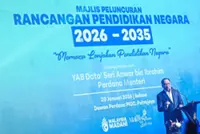MALAYSIA has made notable strides in education, achieving near-universal access to primary and lower secondary education with a 2020 gross enrolment rate (GER) of 98.2% and 95.3% respectively.
Despite these positive numbers, a significant educational gap persists for indigenous children, particularly the Orang Asli.





